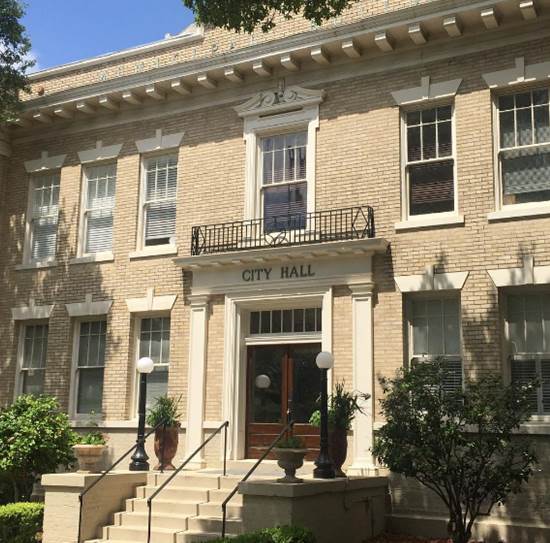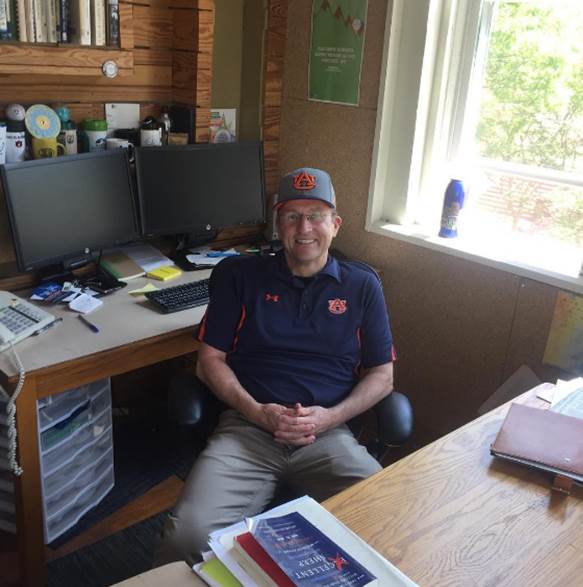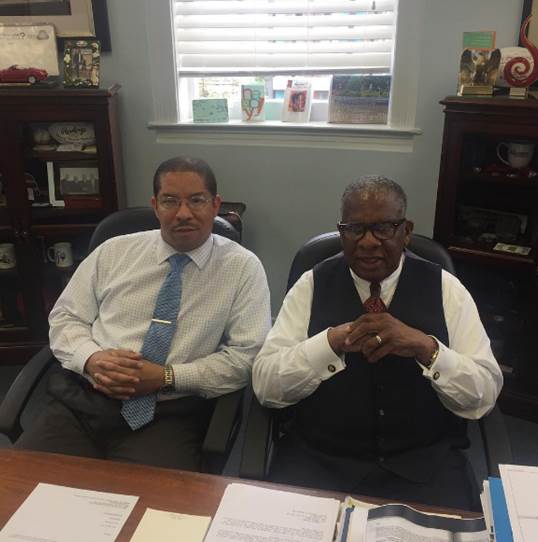The American Resilience Roadtrip series follows concerned citizen Ben Colombo on a year-long, 50-state tour to find out how city governments, citizen groups, nonprofits, and others are making their communities more sustainable, more resilient, and better served. Follow Ben and ICLEI USA on Twitter and Instagram as we discover a more sustainable, more compassionate USA thriving at the ground level.
Mayor Grennell is working hard to increase the vitality of historic Natchez, MS, by expanding engagement with the riverfront, improving the city’s walkability, investing in recycling and clean water infrastructure and launching a locally sourced farmer’s market.
If Miami-Dade and southeastern Florida are close to the epicenter of our national discourse about climate change, sustainability and resilience, the states of Alabama and Mississippi reside somewhere on the outer fringes. Both states have suffered devastation and tragedy in the wake of powerful tornadoes and each has vulnerable communities along the Gulf Coast. But for a variety of cultural, economic, religious, political and historical reasons, the issues I am traveling the country to learn about are not the most pressing ones in this part of the country.
Of course, this is a broad generalization, but the basic point is starkly underscored by results from a study conducted by the Yale Program on Climate Change Communication in 2016 that found that the percentage of adults who at least occasionally discuss global warming in Alabama is lower than in any other state in the country. Mississippi has the second lowest percentage.
Knowing this as I drove through the beautiful green hills of central Alabama towards the City of Auburn, I wondered what I would find during my conversation with Mike Kensler, Auburn University’s head of sustainability. I found signs of change and reason for hope.
Sustainability Exemplified at Auburn University
Mike Kensler and his team at @ausustain are setting an example for universities across Alabama and the south for what can be accomplished when institutions incorporate sustainability goals into their planning.
Mike and his small team have accomplished a lot since he took on his role in 2011. Auburn University is more sustainable and resilient due to their efforts. It has improved its storm water management infrastructure, increased the availability of fresh local food, implemented a campus-wide transit system and a car-share program, and engaged staff through educational programs.
What really gave me hope, though, was when Mike told me about the plans that the university has for the future and how the student body has been the real driver of change on campus: Students have pushed the administration to incorporate considerations about sustainability into all that it does. As so often happens in times of change, young people are leading the way.
Mississippi River Towns Natchez and Vicksburg Show Resilience in Face of Painful History
Mayor Flaggs retired after serving 25 years in the Mississippi House to become the mayor of his hometown, Vicksburg. Together with staff members like Brian Boykins, Mayor Flaggs is working to revitalize the Vicksburg downtown and increase citizens’ interaction with the river.
I witnessed signs of another type of change when I visited the Mississippi River towns of Natchez and Vicksburg, Mississippi. Like much of Mississippi, Natchez and Vicksburg are steeped in history, a complex, haunted history that has a raw duality of pain and resilience, horror and hope.
Natchez was home to the Forks of the Road Slave Market, Mississippi’s largest slave entrepot. Slightly to the north, Vicksburg was the site of a pivotal Civil War battle. In more recent decades, the area has suffered the trauma of shuttering factories and shrinking populations. I mention all of this because Mayor Darryl Grennel of Natchez and Mayor George Flaggs of Vicksburg told me of these events when we spoke, and not necessarily with a tone of complaint about their towns’ histories, but rather with an acceptance of facts of life. These troubling aspects of our nation’s slave era are part of the heritage of this region — but also, I think, a source of its enduring resilience.
Both Mayor Grennel and Mayor Flaggs have led their towns as part of the Mississippi River Cities & Towns Initiative, a coalition of 124 mayors dedicated to preserving and protecting the great waterway, its culture, and its heritage, while promoting growth within the regions. The MRCTI addresses matters of concern through five programs: Clean Water, Sustainable Economies, Disaster Resilience and Adaptation, International Food and Water Security, Celebration of River Culture, History, and Heritage.
That resilience and the optimism that a troubled past has fostered shone through when I spoke to Mayor Grennel about the work that Natchez is doing to foster engagement with its riverfront on the Natchez bluffs, to increase the walkability of that riverfront through its trails program, to encourage sustainable development in its downtown and to improve the quality of water along its stretch of the Mississippi.
During our meeting, we were joined by representatives from the Natchez Water Works and it was fascinating and encouraging to hear about the investments they have made to improve water treatment in the city.
In Vicksburg, I heard much the same from Mayor Flaggs and his aide, Brian Boykins. They are working hard to encourage revitalization of downtown and its retail heart and want to enhance the town’s focus on their majestic neighbor, the Mississippi River, while ensuring that it is managed sustainably.
I, for one, am encouraged and can’t wait to go back and see what these resilient towns and their leaders accomplish.
Ben Colombo is a Senior Vice President at a New York based CEO advisory firm. He is inspired by the critical role that local governments and organizations are playing to address sustainability and resilience issues across the United States and is proud to partner with ICLEI USA on The American Resilience Roadtrip. Follow the Roadtrip on Twitter and Instagram.


